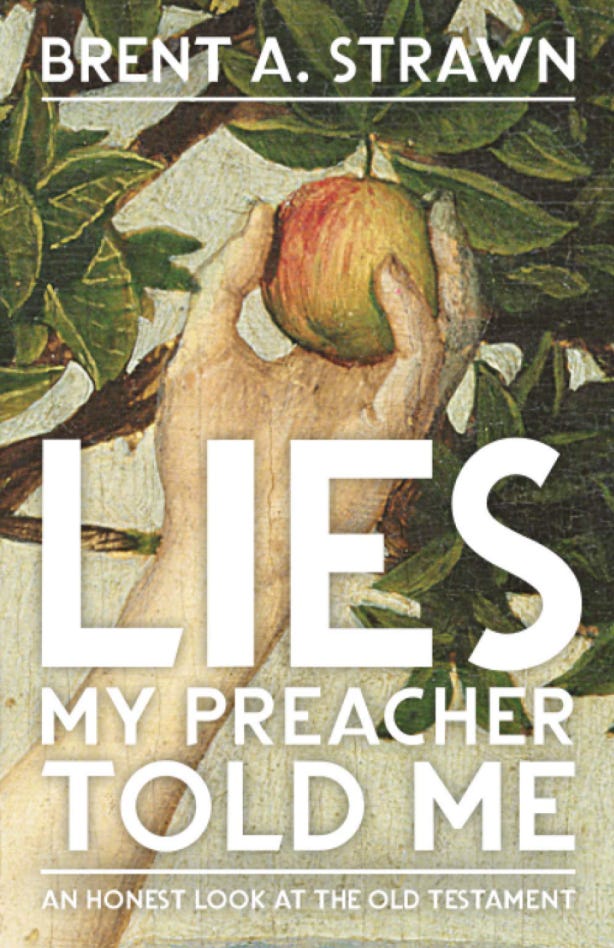Is the Old Testament obsolete?
Brent Strawn takes on a mistruth repeated in churches
Brent Strawn, an Old Testament professor, has heard them all. Preachers, teachers, students, and lay folks say things about the Old Testament that do not square with the Old Testament or the New Testament or the Christian tradition. But what they say carries lots of weight, so he takes 10 Mistruths on in his new book: Lies My Preacher Told Me.
I must tell one I heard routinely in my Sunday School classes growing up (and elsewhere): The Old Testament is for Jews; they live by works; we are Christians; we live by grace and faith. This was tied in my world to a dispensational reading of the Bible in which Moses stood for a covenant of works.
Mistruth three: the OT is over and one, obsolete. Here is the pet verse for the claim:
In speaking of “a new covenant,” he has made the first one obsolete. And what is obsolete and growing old will soon disappear (Heb 8:13).
Pretty strong words, those. For some this means the “new” covenant completely shelves the OT into a “Don’t go there!” or “Don’t bother with that!” Jesus’ antitheses in Matthew 5 (“you have said… but I say to you”) illustrate the obsolescence of the OT.
The problem is that this is too simplistic and categorical. So I suggest to students to think about the following:
In Acts 21 Paul goes into the temple and makes a vow.
In Acts 23:6 he says “I am a Pharisee” not “I was a Pharisee.”
In 1 Cor 9:19-23 Paul says when he’s with the Jews he’s a Jew.
Unless you think Paul was play-acting or lying you must think there’s quite a bit of nuance in the relationship of the OT Torah to Christian living. Where one stands on the relationship of the OT to the NT, of the Torah to the Christian life, determines the answer to nearly every mistruth about the Old Testament.
Strawn makes the following observations from his well of wisdom of answering questions of well-meaning folks:
1. “Old” doesn’t mean “bad.” It can mean ancient and venerable. And it can lead to the word of the NT: “fulfill.” Which means fill up and fill out, not empty and then fill again.
2. “New” doesn’t mean “Christian.” Jeremiah and Isaiah and Ezekiel think of something “new” pertaining to Israel/Judah and not to some elimination of Israel.
3. Jesus wasn’t “replacing” the old. Much of what he says in the antitheses of Matthew 5 has parallels in the OT; much of what he says has parallels in Judaism; what he says points to himself as the Messianic revealer and teacher, not to Moses becoming obsolete – so chuck your OT or print it after the NT or cut it out.
4. What is “discontinued” is not “rejected.” Here Strawn points to the 18th Amendment (prohibition of alcohol) to the 21st Amendment (repealing the 18th).
Well, repealing gets us into a good discussion: how does something in the OT that is repealed, say the temple or kosher food laws, relate to Christian living?
I like the word “fulfill” and the ideas of a preliminary revelation being updated and advanced and developed.
This means we read the OT as our story; it means we see in it what is to come as well; it does not mean we chuck it. I have been reading two-four chapters of the OT every evening for three years and I love the OT. I cover my eyes at times with the ridiculous violence in some of the stories but that’s not rejecting it. Instead, it is seeing through it to the end of violence in our peaceful Lamb and Savior, Jesus Christ.
I agree with Strawn: “it remains lively and useful part of Scripture and a crucial resource for Christian reflection.”



When I'm teaching spiritual formation stuff I always say that you can't fully get the NT without understanding the OT. Always loved reading the OT. 🤔😎
Scot McKnight, I just finished reading this book yesterday. It only took an hour and half to read anyway. A lot of truth in 100+ pages. And as a Campbellite (we have a love hate relationship with the Hebrew Bible, it was after all "nailed to the cross!), I have heard everyone of those lies from Sunday School to undergraduate school. I have long rejected all of those. And now Andy Stanley has out Campbelled, Alexander Campbell on the OT! Great little book. May leaders wrestle with it and begin to preach (responsibly) the Hebrew Bible.